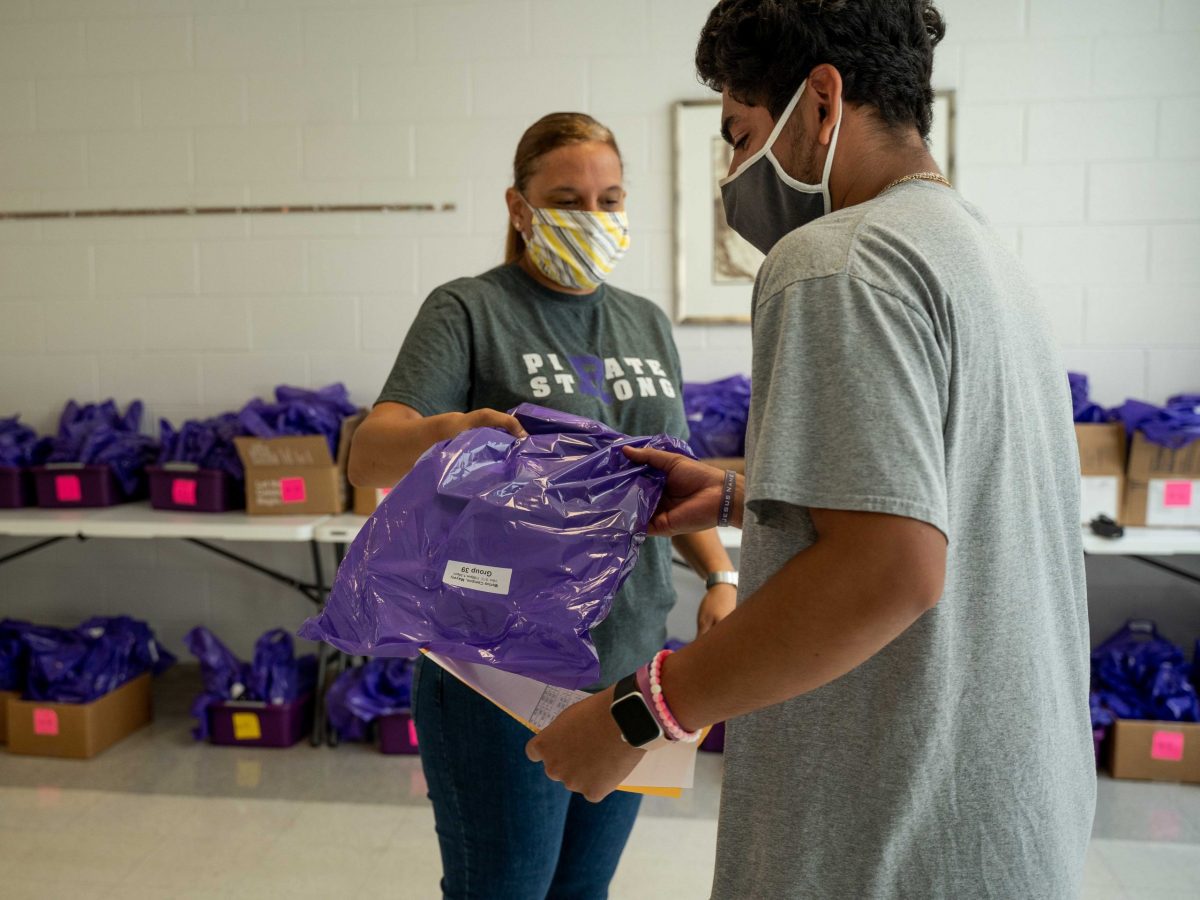While working as a technology specialist in Durham Public Schools, Laura Fogle learned about a student whose phone screen was so cracked, glass shards cut her fingers when she typed. Yet she tried to write an essay on it. Unlike other classmates, she did not have a computer at home.
With the school year set to start online on Monday, the local school district has been working for months to collapse such digital divides among students.
A high-profile step was the purchase of over 20,000 Chromebooks for grades kindergarten through 12. Students lacking internet access are getting hotspot devices too, to ensure they can connect.
And even with this process, there have been bumps. At some schools, like Parkwood Elementary, Chromebook shipments have been delayed.
Achieving an equitable experience for almost 33,000 students is a far greater job than merely giving each a device and internet access, however. Teachers have to redesign courses, students need to master their devices, and when the technology fails or things break, money must be available for repairs and replacements.

With the support of community members and Durham Public Schools Foundation, schools like Lakewood Elementary are hustling to figure out what an effective online school and school community looks like.
Without the school bus picking students up each morning and the energy of students at recess vibrating through the neighborhood, Principal James Hopkins has to find a new way to connect his Lakewood community.
To do so, he is breaking down school-opening preparations into action items. His first task: calling all Lakewood families.
Families received a call by Tuesday from Lakewood to check in about the upcoming year, understand any concerns or extraneous needs they have, and inform them of their time slot to pick up Chromebooks from the school.
Open house did not feature the typical classroom tours or teacher meet and greet. Instead families used their student’s device to log onto Zoom.
The next action steps are the most complicated – navigating online teaching.
Lakewood teachers have had to adapt to Canvas, the learning management platform DPS is using across all schools, Hopkins said. Canvas will serve as a home base, where teachers can create lesson plans, grade books, online quizzes and other materials for their students to access.
Next, Hopkins says teachers must mentally prepare themselves to connect from afar.
Rather than pulling students aside to sound out tricky words, teachers will now have to improvise. Maybe they call students one-on-one, or maybe they slow the lesson plan down from the beginning.
“It’s something we were never trained to do, something that in our wildest dreams, we may not have believed that we would be doing. And so, that’s much easier said than done,” he said.
To help district schools, the Durham Public Schools Foundation has launched a $1.5 million fundraising campaign called “Accelerating Digital Equity.”
The campaign has four main focuses. They include training teachers, raising money for ongoing technology needs, supporting students, especially those with additional needs such as bilingual technology support in a district where over 5,000 students enrolled as English language learners in 2018-2019.
Providing community spaces for students to learn from if they are unable to do so at home is the last goal. The learning centers, announced this week, will be a supervised, socially-distant environment for students who need it.
These four components are needed to build a learning ecosystem, the setting in which students are able to learn successfully, said Katie Wright, the foundation’s development and communications specialist.
“If you have the device but you don’t have these other supports in place, it’s not going to be quality, remote learning experience, and that’s what students need to not fall behind,” she said.
In 2018, the US Census Bureau estimated over 12,000 people in Durham county had no internet access, and over 11,000 people relied on their smartphone as their only device. This alone diminishes all ability to learn virtually from home.
“In Durham because of our geography and the concentration of population that we have, the issue is much more about affordability for people connecting to the internet — whether or not it’s available, is much less of an issue,” said Fogle, who now works with Digital Durham, which promotes digital inclusion.
To spread word of the campaign to keep students online, the foundation has identified “accelerators,” volunteers who are willing to spread word of the effort with friends, family and community groups.

The foundation also created the Durham HOPE Network, a database of free community resources available now to DPS schools and families. This includes anything from free tutoring sessions to information on event spaces available for small, socially distant gatherings.
To put all the puzzle pieces together, teachers will need to lean on each other, said Hopkins. Each year he shares a theme with the Lakewood community. This year it is one word: Together.
“It’s like going down a road that no one’s ever traveled down. There are going to be six boulders, all sorts of things in our path that we must be able to move and create together,” he said.
All this effort in the midst of a pandemic may bring lasting improvements to Durham even when this coronavirus outbreak is a memory.
“We have an opportunity to create an equitable situation where all of our students are getting digital literacy and their families are able to have careers that require that,” Wright said.
9th Street reporter Michaela Towfighi can be reached at michaela.towfighi@duke.edu
At top: Riverside High School Principal Tonya Williams Leathers helped hand out Chromebooks to students this week. Photo by Henry Haggart
Michaela Towfighi

